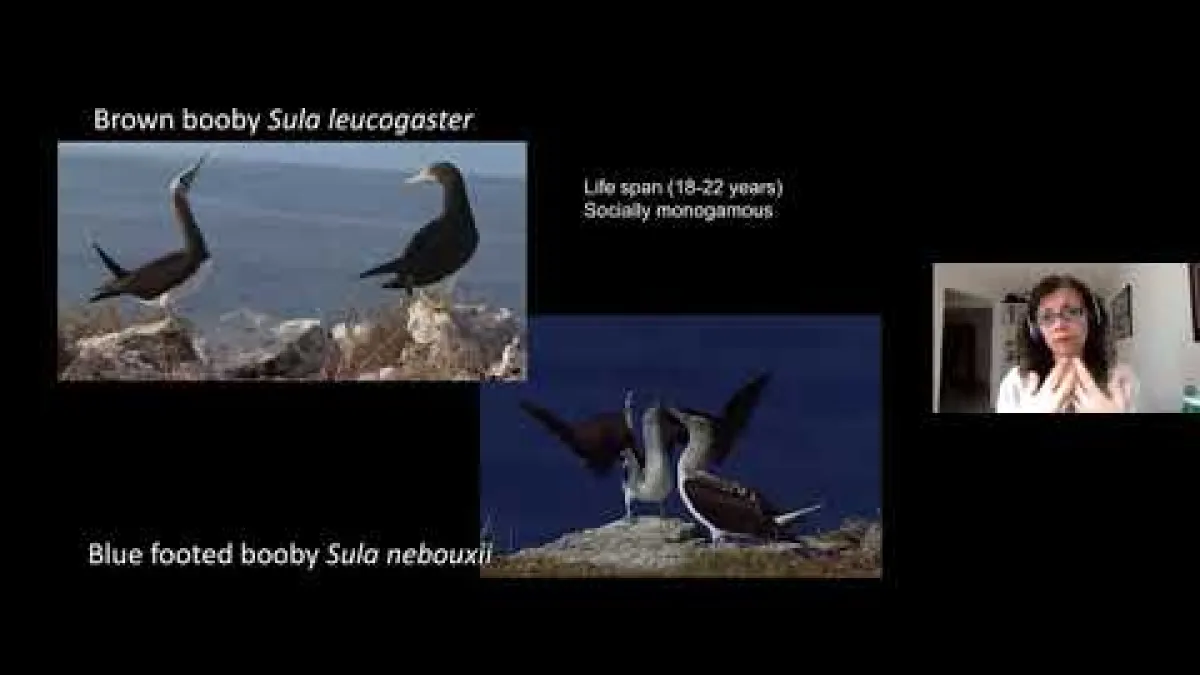E&E Webinar: Sexual selection from a life history perspective
Reproductive success is strongly related to the display of extravagant sexual traits, such as the striking coloration of some bird species.
Speakers
Event series
Content navigation
Description

Reproductive success is strongly related to the display of extravagant sexual traits, such as the striking coloration of some bird species. Sexual traits are frequently costly to produce, hence, to maximize life-time reproductive success animals should adjust investment to the reproductive value of the current breeding event. This adjustment is itself a function of age and of current ecological conditions. Our work on blue-footed and brown boobies shows that skin colour displayed during courtship is a dynamic trait under mutual mate choice that affects several components of reproductive success and is related to foraging behaviour. In these long-lived birds, sexual colouration is compromised by senescence and, at the population level, varies among years and colonies. Our studies emphasize that patterns of investment in sexual displays and the expression of preferences, as any other life history trait, vary individually according to intrinsic factors such as senescence, and with ecological conditions.
Biography
Roxana Torres is a full-time researcher at the Instituto de Ecologia of Universidad Nacional Autónoma de México (UNAM). She was awarded a PhD from UNAM in 1996, worked as a postdoctoral researcher in Canada, and has spent some time as an academic visitor at the University of Glasgow in Scotland and Simon Fraser University, Canada. Her interests focus broadly on behavioural and evolutionary ecology. She has investigated various aspects of mate choice, sexual signalling, parental care, senescence and associated life-history trade-offs, using mainly seabirds as models. Her research uses a combination of field experiments as well as long-term data.
Location
Please click this link to join the webinar:
https://anu.zoom.us/j/99583772866?pwd=WVRnd2Z3OHJCTzhxYWtHYlZha1dLZz09
Passcode: 067841
Canberra time: please check your local time & date if you are watching from elsewhere

